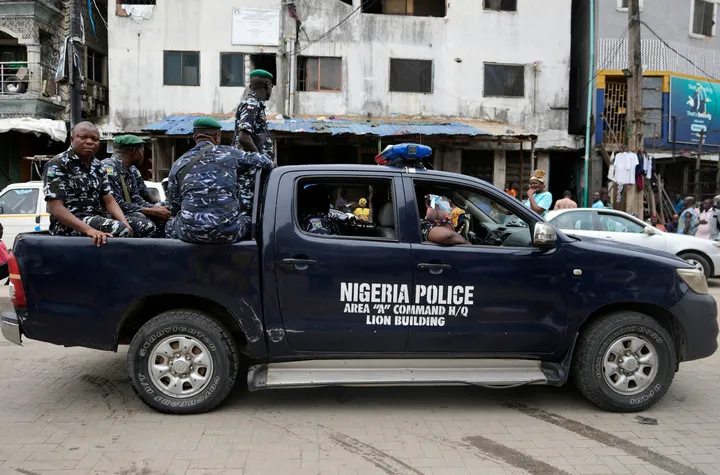Jailed and tortured, Jean Noyoma Kovounsouna was one of the tens of thousands of victims of former Chadian president Hissene Habre's brutal reign.
The autocrat died aged 79 of Covid-19 on Tuesday in Senegal, where he was serving a life sentence for crimes inflicted under his eight-year dictatorship.
But his death has failed to resolve the issue of compensation for those who suffered. So far, not a penny out of millions of expected dollars has been paid.
Habre's rule from 1982 to 1990 was marked by brutal crackdowns on dissent, including torture and executions of opponents.
"It was a time of terror, the police were extremely harsh," the 60-year-old Noyoma said.
"As soon as there were any doubts about your opinion, they came for you, day or night. And nobody was told, neither your family, nor your friends nor anyone else."
"In 1989," he recalled, "I was taken from my place of work and brought to one of N'Djamena's worst prisons. There were six of us in a cell measuring four square metres (yards). I was tortured several times."
Some 40,000 people are estimated to have been killed under Habre, who earned the nickname of "Africa's Pinochet." He was eventually arrested in 2013, tried by a special tribunal set up by the African Union under a deal with Senegal.
In May 2016, he was handed a life term for war crimes, crimes against humanity and torture, a sentence upheld the following year.
The former dictator was also ordered to pay the equivalent of up to $33,000 (30,000 euros) to each of victims, who suffered rape, arbitrary detention and imprisonment during his rule, as well as to their relatives.
But victims' groups say they have not been paid, while suspecting that Habre has left behind a considerable fortune.
Fight until last breath
In 2015, a Chadian court sentenced 24 former members of the Habre's DDS secret police to terms in jail and ordered them to pay compensation to the 7,000 recorded victims. The Chadian state was to pay half of the sum, which amounted to the equivalent of $134 million in total.
"We have been waiting six years to be compensated," said Ousmane Abakar Tehir, the national coordinator for the victims of Habre's regime association.
"It's not because he's dead that we are going to give up the fight to obtain our rights," he said.
Abakar also spent time in jail during Habre's regime. He remembers sleepless nights when he would watch fellow prisoners be taken away and never come back.
Fatime Oumar's husband went to work one day in 1988. He spent the day there and left to come home. He never made it, and no one ever saw him again. "I found out my husband was dead when Habre left power. I never saw his body in order to grieve," she said.
"Even if Habre is dead, we will fight until our last breath for compensation. It's a decision of the law."
Lack of political will
The African Union leaders set up a trust fund for victims in 2017 and allocated $5 million to it.
"The political will to properly set up and activate the trust fund is simply lacking," said Jacqueline Moudeina, a lawyer who represents Habre's victims.
Human Rights Watch (HRW) said in a statement that the fund had yet to become operational, adding "victims have not received a penny of reparations".
"The African Union, Chad and Senegal have to do all they can to compensate us," said Noyoma. "Habre is dead but the struggle goes on, and we will not give up."























